The introduction of legislation giving effect to the Commonwealth Government’s deposit gap scheme is the first step in easing the pathway to home ownership, according to the Urban Development Institute of Australia (UDIA).
The scheme – promised on the eve of the federal election – helps reduce barriers to home ownership by closing deposit savings requirement and effectively reducing mortgage insurance costs.
The UDIA’s National Executive Director Connie Kirk has welcomed introduction of the legislation and said the next critical step was getting design features right.
UDIA has been actively engaging with the National Housing Finance and Investment Corporation (NHFIC), which has carriage of the scheme’s design, implementation and ongoing management.
“The scheme rightly recognises that saving for a deposit is arguably the biggest hurdle most homebuyers face in trying to enter the market,” Ms Kirk said.
“The rapid escalation in house prices in the past decade has widened the deposit gap, so the Commonwealth’s decision to effectively go guarantor on a portion of the loan makes sense.
“It sits well alongside other initiatives to improve housing affordability – like retention of negative gearing and capital gains tax arrangements, and improved loan serviceability assessment rules.
“The next challenge is to ensure the design principles of the scheme reflect the reality of house prices in different markets.
“The draft legislation proposes variable price caps for different capital cities and regions, which is a perfectly logical step.
“We would also urge however that the same flexibility apply to income thresholds, particularly in the most expensive capital cities like Sydney and Melbourne.
“Our research shows that singles in particular on the proposed income threshold of $125,000 would not be able to access housing in large tracts of Sydney and Melbourne.
“The other recommendation we would make is to limit access to the scheme to newly-constructed properties, which has the benefit of spurring construction activity at a time the economy needs a boost.”
Ms Kirk also welcomed provisions in the legislation to expand the mandate of NHFIC to examine housing supply, demand and affordability.
“The renewed research capacity will give the Government deeper insights into the policy barriers to improved housing production and better affordability,” Ms Kirk said.
UDIA National looks forward to working further with Government on the precise design of the new mandate for NHFIC.

